Table of Contents
Navigating the world of visas can be a complex and often daunting task. Whether you’re an international student, a skilled worker or a family member seeking to join a loved one in a foreign country, understanding the intricacies of visa validity, extensions and travel regulations is crucial. In this article, we will demystify the process of maintaining status on your visa and offer valuable insights to help you stay on the right side of immigration laws.
Indeed, the realm of visas is a multifaceted and occasionally overwhelming landscape, encompassing various categories, requirements and legal considerations. Regardless of your background or objectives, whether you’re an international student embarking on an academic journey, a skilled professional pursuing career opportunities abroad or a family member yearning to reunite with loved ones in a foreign land, the importance of grasping visa intricacies cannot be overstated. In this article, we embark on a journey to demystify the complexities associated with maintaining visa status and adhering to immigration regulations. Here’s an extended exploration of this critical topic:
Visa Validity and Beyond: Visa validity is more than just the period indicated on the visa stamp. It encompasses the entire duration of your stay, including any extensions or changes in status you may pursue. Understanding the fine print of your visa, such as the allowed activities, limitations and expiration date, is your first step toward compliance.
Staying Informed: Immigration laws are not static; they evolve over time. Staying informed about changes in regulations, policies and procedures is essential to ensure that your actions remain in alignment with the current legal framework. Regularly consulting official government sources or seeking guidance from immigration experts can help you navigate any shifts in the immigration landscape.
Extension Options: Many visa categories offer the possibility of extensions if you meet specific criteria. For example, students may extend their F-1 visas through Optional Practical Training (OPT), while employment-based visas often allow for extensions based on continued employment or pending green card applications. Familiarizing yourself with these extension opportunities can help you plan your stay effectively.
Compliance with Visa Conditions: Each visa category comes with its own set of conditions and restrictions. Adhering to these conditions is imperative. For example, students must maintain full-time enrollment, while professionals must remain employed with the sponsoring employer. Failing to meet these requirements can lead to visa violations and potential consequences.
Travel Considerations: International travel while on a visa requires careful planning. Reentry to the host country may necessitate a valid visa, travel endorsements or visa stamping at a consulate or embassy. Understanding the rules and potential challenges associated with international travel is vital to avoid disruptions to your status.
Record-Keeping: Maintaining meticulous records of your immigration documents, such as I-20s, DS-2019s or I-797s, is essential. These documents serve as evidence of your legal status and compliance with visa conditions. Regularly updating and organizing your records ensures that you can readily provide documentation when needed.
Seeking Legal Guidance: When in doubt or facing complex immigration scenarios, consulting with an immigration attorney is a prudent course of action. Attorneys with expertise in immigration law can offer tailored advice, clarify your options and help you make informed decisions.
Community and Resources: Building a network within your host country’s immigrant community and accessing relevant resources, such as cultural centers, advocacy organizations or support groups, can provide valuable guidance and assistance as you navigate your visa journey.
In closing, understanding and maintaining visa status is not just a matter of legal compliance; it’s crucial for achieving your goals and safeguarding your future in a foreign land. By demystifying the intricacies of visas, staying informed, adhering to conditions and seeking expert guidance when needed, you empower yourself to navigate the complexities of immigration law with confidence, ensuring that your journey remains in harmony with the ever-evolving landscape of immigration regulations.
Explore this link for a more extensive examination of the topic: Glossary – Canada.ca
Understanding Visa Validity
Visa validity refers to the period during which you are allowed to enter a foreign country and stay legally. It is essential to note that the expiration date on your visa is not the same as the duration you can stay in the country. Instead, it indicates the last date by which you can enter the country using that visa.
Upon your arrival, you will typically receive a stamp or sticker on your passport with the “admitted until” date, which specifies how long you can stay. It’s crucial to abide by this date to avoid violating your visa status. Overstaying your visa can lead to serious consequences, including deportation and future visa denials.
Visa validity is a critical aspect of international travel and immigration and it’s important to fully understand its nuances to ensure a smooth and legal stay in a foreign country. Here’s a more comprehensive exploration of visa validity and its implications:
1. Entry Window: The expiration date on your visa signifies the last day you are allowed to enter the foreign country using that visa. It essentially serves as a “window of opportunity” during which you can cross the border and seek admission.
2. Duration of Stay: Once you enter the foreign country, the immigration authorities will typically grant you a specific duration of stay. This duration is indicated by the “admitted until” date stamped or stickered in your passport. It’s crucial to note that this date determines the length of time you can legally remain in the country.
3. Compliance with “Admitted Until” Date: To maintain lawful status in the foreign country, it is imperative to adhere to the “admitted until” date. Staying beyond this date can result in a violation of your visa status, which may lead to serious consequences, including deportation and future visa denials.
4. Visa Extensions: If you require more time in the foreign country beyond the “admitted until” date, it’s advisable to explore the possibility of a visa extension. Depending on the country’s immigration policies and your specific circumstances, extensions may be granted for valid reasons, such as continued studies or employment.
5. Exit Before Expiry: If you cannot extend your visa or if you have no valid reason to remain in the foreign country beyond the “admitted until” date, it’s crucial to exit the country before your authorized stay expires. Failure to do so can have far-reaching consequences on your immigration record and future travel plans.
6. Penalties for Overstaying: Overstaying your visa is a violation of immigration laws and can result in penalties that may include fines, deportation or even a ban on reentry to the foreign country for a specified period.
7. Visa Types and Conditions: Different types of visas come with varying conditions and durations of stay. It’s essential to thoroughly review the terms and limitations associated with your specific visa category to ensure compliance.
8. Consular Processing: In some cases, if you wish to return to the foreign country after your visa has expired, you may need to undergo the consular processing procedure to obtain a new visa. This process typically involves reapplying for a visa from your home country’s embassy or consulate.
9. Legal Counsel: If you find yourself in a situation where you have questions about your visa status or need to address an overstaying issue, seeking legal counsel from an immigration attorney is advisable. They can provide guidance and assistance tailored to your circumstances.
In summary, understanding visa validity, the distinction between the visa expiration date and the “admitted until” date and the importance of complying with the latter is vital for a trouble-free and legal stay in a foreign country. Staying informed, abiding by immigration regulations and seeking appropriate remedies when necessary are key to ensuring that your international travels and immigration experiences are both rewarding and compliant with the law.
You can also read more about this here: What the Visa Expiration Date Means
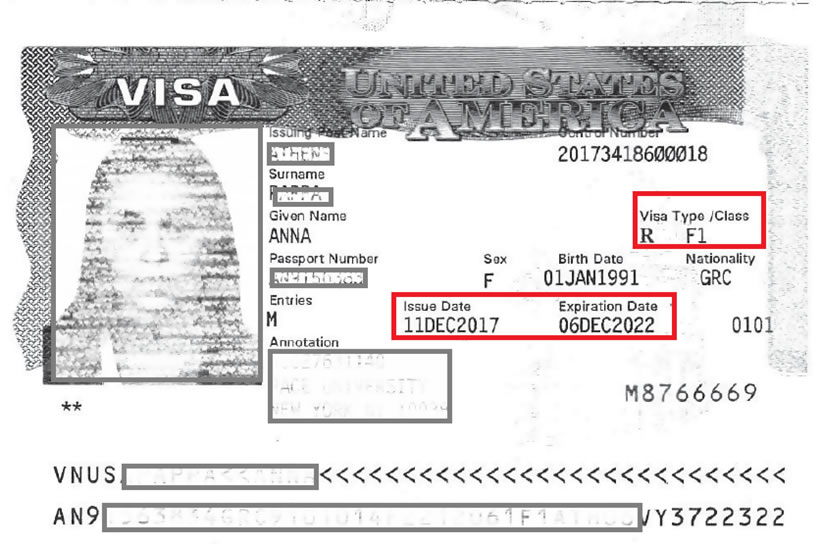
Extensions and Renewals
If you find that you need more time in the foreign country beyond the initial visa duration, you may be eligible for an extension or renewal. The rules and processes for extensions vary depending on the type of visa you hold and the country’s immigration laws.
When it comes to extending your stay in a foreign country, understanding the process of visa extensions and renewals is essential. Here, we’ll delve deeper into this topic to shed light on the nuances and factors that can influence your eligibility and the procedures involved.
Visa Categories Matter: The type of visa you hold plays a crucial role in determining whether you can apply for an extension or renewal. Different visas cater to various purposes, such as student visas, work visas, tourist visas and family-based visas. Each category has its specific guidelines and criteria for extensions or renewals.
Eligibility Criteria: To qualify for an extension or renewal, you typically need to meet certain eligibility criteria. For instance, if you’re on a student visa, you might be required to maintain a full course load and academic progress to be eligible for an extension. Similarly, work visa holders may need to demonstrate continued employment with their sponsoring employer.
Documentation and Proof: The application process for extensions or renewals often involves providing documentation and evidence to support your request. This may include academic transcripts, employment contracts, financial statements and proof of your intent to return to your home country once your visa status expires.
Timing is Critical: Timing is crucial when applying for extensions or renewals. It’s advisable to start the process well in advance of your visa expiration date, as some countries have strict deadlines for submitting applications. Applying late may result in a lapse in your legal status, which can have serious consequences.
Consult with Immigration Authorities: If you’re unsure about the specific rules and procedures for your visa category, it’s highly recommended to consult with immigration authorities or an immigration attorney. They can provide you with personalized guidance and ensure that you complete the application accurately.
Plan Ahead: It’s also wise to plan your international stay carefully. If you anticipate needing more time in the foreign country, discuss this with your employer, school or family members well in advance. Planning can help you avoid last-minute stress and complications associated with visa extensions or renewals.
Alternative Visa Categories: In some cases, if you no longer qualify for an extension or renewal in your current visa category, you might explore alternative visa options. For example, transitioning from a student visa to a work visa may be a viable option upon completing your studies.
Stay Informed: Immigration laws and regulations can change, so it’s essential to stay informed about updates that may impact your visa status. Subscribing to official government websites, newsletters or consulting with immigration experts can help you stay up-to-date with any changes that may affect your situation.
In conclusion, visa extensions and renewals provide the flexibility needed for individuals who require more time in a foreign country. However, navigating this process can be intricate and depends on various factors, including your visa category and the specific immigration laws of the country you’re in. By understanding these factors, staying informed and seeking expert advice when necessary, you can ensure a smooth and legal transition as you continue your international journey.
Looking for more insights? You’ll find them right here in our extended coverage: USCIS Increases Automatic Extension Period of Work Permits for …
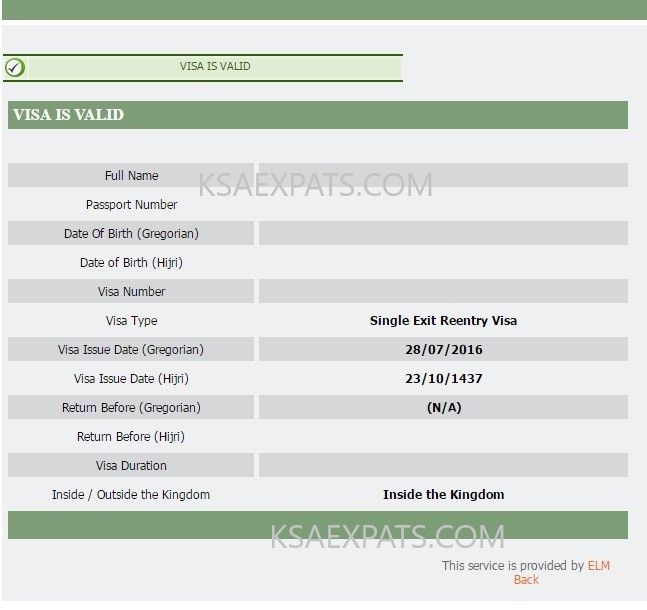
Student Visas
International students can often apply for visa extensions if they need more time to complete their studies or optional practical training (OPT). Ensure you maintain a full course load and follow all reporting requirements to remain eligible for extensions.
International students can often apply for visa extensions if they need more time to complete their studies or optional practical training (OPT). Ensure you maintain a full course load and follow all reporting requirements to remain eligible for extensions. Here are some key considerations and steps to keep in mind:
Early Planning: It’s crucial to plan for your visa extension well in advance of your current visa’s expiration date. Start by assessing your academic progress and evaluating whether you may need additional time to finish your program or engage in practical training opportunities.
Academic Advising: Consult with your academic advisor to discuss your academic goals and any challenges you may be facing. They can provide guidance on course selection, course load requirements and academic strategies that can help you meet your objectives.
Maintain Full-Time Enrollment: To be eligible for visa extensions, international students typically need to maintain a full-time course load as defined by their institution. Be aware of any exceptions or reduced course load options available to you and ensure they comply with visa regulations.
Optional Practical Training (OPT): If you plan to utilize OPT, coordinate closely with your designated school official (DSO) to apply for OPT employment authorization. OPT allows you to gain practical experience related to your field of study, but maintaining status and reporting your employment are critical.
SEVIS Compliance: The Student and Exchange Visitor Information System (SEVIS) tracks your status as an international student in the United States. Ensure that your DSO has accurate and up-to-date information about your program, employment and any changes to your circumstances.
Timely Application: Start the visa extension application process well in advance of your visa’s expiration date. Depending on your situation, this may involve filing Form I-20 or Form DS-2019, along with any required documentation, with USCIS or the Department of State.
Financial Proof: Be prepared to demonstrate that you have the financial means to support yourself during the extended period of study or training. This may include bank statements, sponsorship letters or scholarship awards.
Maintain Good Standing: Uphold your academic integrity and adhere to the school’s code of conduct. Any disciplinary issues or legal problems can negatively impact your immigration status.
Stay Informed: Visa regulations and policies can change, so stay informed about any updates or changes that may affect your situation. Your DSO can provide guidance on the latest immigration requirements.
Legal Counsel: If you encounter complex immigration issues or face unexpected challenges, consider consulting an immigration attorney who specializes in student visas. They can provide legal advice and assistance tailored to your circumstances.
By proactively managing your academic progress, maintaining compliance with visa regulations and seeking guidance when needed, you can navigate the visa extension process with confidence and ensure that you have the necessary time to complete your studies or engage in practical training opportunities in the United States.
Additionally, you can find further information on this topic by visiting this page: Visa vs. Status | The Office of International Affairs | The University of …
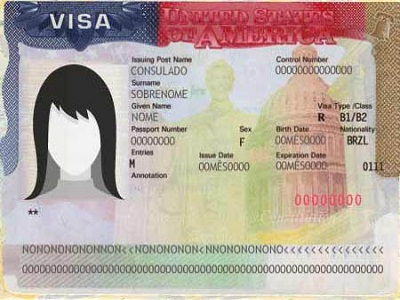
Work Visas
Skilled workers may be able to renew their work visas if their employment continues or if they qualify for a different employment-based visa category.
Skilled workers may be able to renew their work visas if their employment continues or if they qualify for a different employment-based visa category. This flexibility within the immigration system not only benefits foreign workers but also contributes to the dynamism of the U.S. labor market and the overall economy.
For skilled workers, the opportunity to renew their work visas underscores the importance of their contributions to various sectors, from technology to healthcare, education to engineering. This continuity of employment can lead to increased expertise and a deeper integration into the American workforce, which often results in a more vibrant and innovative economy.
Moreover, the possibility of transitioning to a different employment-based visa category opens doors to new opportunities and career growth. It acknowledges that skilled individuals’ talents may find better alignment in different roles or industries, ensuring that the United States can attract and retain a diverse pool of talents to remain globally competitive.
In essence, the ability to renew work visas or transition to other categories not only supports individual career trajectories but also fuels the nation’s ongoing quest for excellence, diversity and economic prosperity. It showcases the adaptability of the U.S. immigration system, aiming to match the evolving needs of both foreign workers and the American job market.
Additionally, you can find further information on this topic by visiting this page: Student Visa
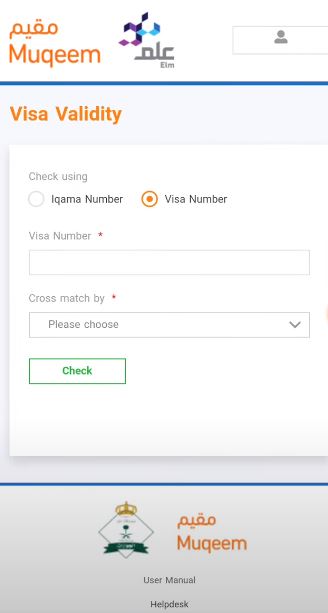
Tourist Visas
Tourist visas are usually more challenging to extend. If you’re on a tourist visa and wish to stay longer, consult with immigration authorities or an attorney to explore your options.
Extending a tourist visa can indeed be more challenging compared to other types of visas due to its temporary nature. When you find yourself in a situation where you wish to prolong your stay in the United States, it’s essential to approach it with careful consideration and seek expert guidance. Here’s an extended perspective on the complexities and options for extending a tourist visa:
Understanding Tourist Visa Limits: Tourist visas, often referred to as B-1 (for business) and B-2 (for pleasure), typically come with specific time limitations. B-2 visas, for instance, often allow for stays of up to six months. Understanding these limitations is crucial to avoid overstaying your visa, which can have serious consequences for future U.S. travel.
Exploring Extension Options: If you find that you need more time in the U.S. beyond your initial visa period, it’s advisable to consult with immigration authorities or an experienced immigration attorney promptly. They can help you explore potential options for extending your stay legally.
Applying for an Extension: One option for extending your tourist visa is to apply for an extension. This involves submitting Form I-539, Application to Extend/Change Nonimmigrant Status, along with supporting documentation. Be sure to file your extension request well before your current visa expires to avoid unlawful presence.
Demonstrating Valid Reasons: When applying for an extension, you must provide valid reasons for the extension. These could include family emergencies, medical treatment or other unforeseen circumstances that necessitate a longer stay. Supporting documentation, such as medical records or letters explaining the situation, is critical.
Proof of Sufficient Funds: You’ll also need to demonstrate that you have sufficient financial resources to cover your extended stay without relying on public assistance. Bank statements or affidavits of support may be required as evidence.
Maintaining Compliance: During the extension process, it’s crucial to continue adhering to the terms and conditions of your initial visa, such as refraining from unauthorized employment or engaging in prohibited activities.
Timely Filing: Filing your extension application well before your visa expiration is vital. If you overstay your visa while your extension request is pending, it could negatively impact your future U.S. visa applications.
Consular Processing: In some cases, it may be advisable to return to your home country and apply for a new tourist visa if you intend to revisit the U.S. for an extended period. Consular processing allows you to obtain a new visa with a longer validity.
Changing Visa Categories: If your circumstances change during your stay in the U.S., you might consider exploring other visa categories that better align with your new situation. For example, you may be eligible for a student visa (F-1) if you wish to pursue academic studies.
Legal Assistance: Navigating the complexities of visa extensions and potential changes in visa categories can be challenging. Consulting with an immigration attorney can provide you with valuable insights, help you understand your options and ensure that your application is prepared accurately and thoroughly.
In summary, extending a tourist visa requires careful planning, adherence to immigration regulations and a clear understanding of your specific circumstances. Seeking guidance from immigration authorities or an attorney is a prudent step to explore your options, maintain compliance with U.S. immigration laws and avoid any adverse impacts on your future travel plans to the United States.
For a comprehensive look at this subject, we invite you to read more on this dedicated page: 9 FAM 402.5 (U) STUDENTS AND EXCHANGE VISITORS – F, M …
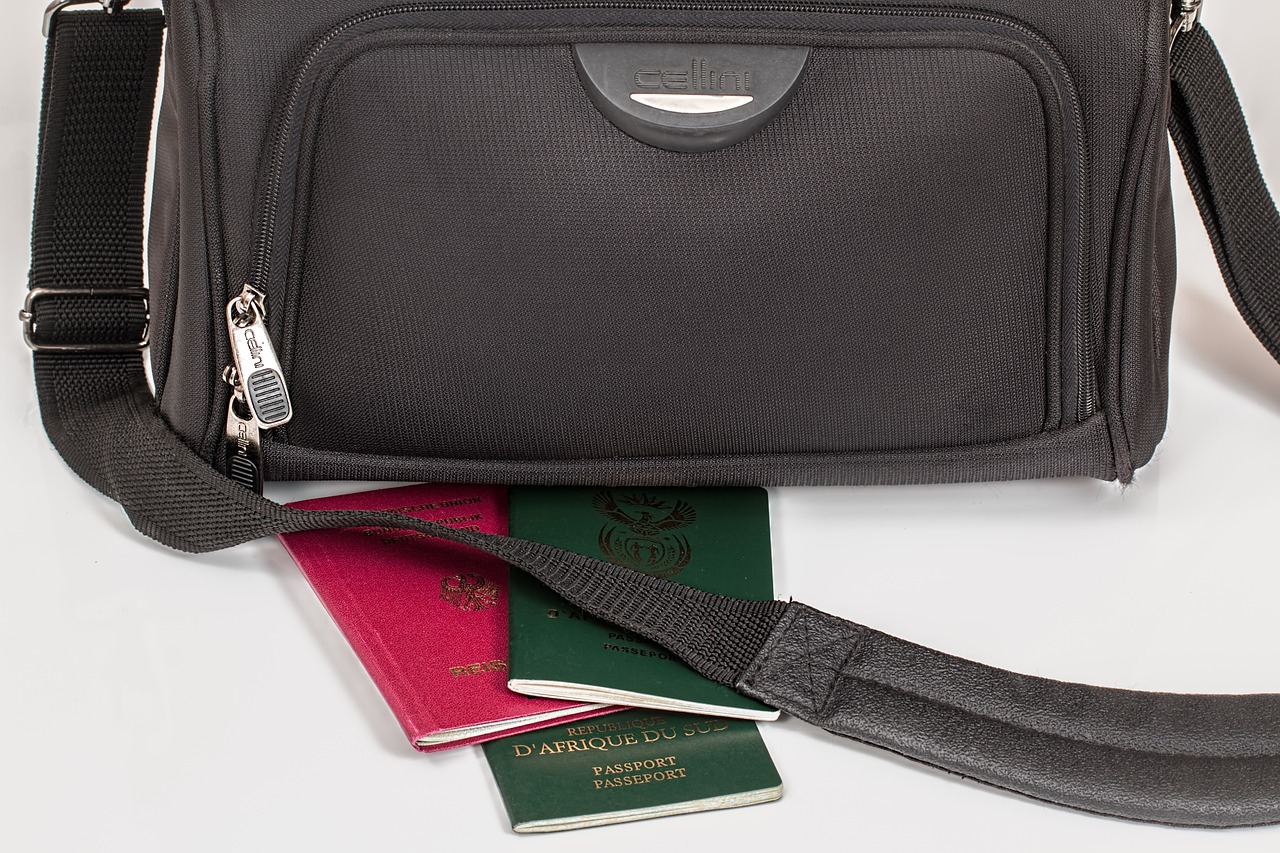
Travel and Re-entry
While it’s important to abide by the rules regarding the duration of your stay, you may still need to travel internationally during your visa validity period. Here are some essential considerations:
Navigating the intricacies of international travel while maintaining compliance with visa regulations can be a delicate balancing act. It’s crucial to respect the rules governing the duration of your stay in your host country, but life often presents situations where international travel becomes a necessity or a desire. Whether it’s for personal reasons, professional commitments or family matters, international travel during your visa validity period is indeed possible, but it requires careful planning and adherence to certain essential considerations:
1. Visa Validity and Expiry Dates: Always check the expiry date of your visa and the authorized duration of stay granted to you. International travel is typically permissible within this timeframe. However, overstaying your visa can have severe consequences, including visa revocation or future entry bans.
2. Travel Intent: When planning international trips, it’s essential to maintain the intent that aligns with your visa category. For instance, if you hold a tourist visa, your primary purpose should be tourism. If you’re on a work visa, ensure that your travel doesn’t jeopardize your employment status or your eligibility for future immigration benefits.
3. Reentry Requirements: Familiarize yourself with the reentry requirements of the country you’re visiting and the United States, particularly if you intend to return during your visa validity period. Some countries have specific entry requirements or visa renewal processes.
4. Documentation: Carry all necessary travel documents, including your valid passport, visa, I-94 (if applicable) and any supporting documentation that may be requested by immigration officials. Make copies of these documents and store them separately to facilitate replacement in case of loss or theft.
5. Maintaining Ties: If you plan to travel for an extended period, ensure you maintain sufficient ties to your home country. This can include employment, property ownership, family connections or other significant commitments that demonstrate your intent to return to your home country.
6. Consult Immigration Authorities: If you have any doubts or concerns about your travel plans, consider consulting with U.S. Citizenship and Immigration Services (USCIS) or other relevant immigration authorities. They can provide guidance specific to your situation and visa category.
7. Advanced Planning: Whenever possible, plan your international travel well in advance. This allows you to address any potential visa renewal or extension needs and ensures you have ample time to gather required documentation.
8. Maintain Legal Status: While abroad, continue to adhere to the visa regulations of your host country and avoid any activities that could jeopardize your immigration status.
In summary, international travel during your visa validity period is possible, but it comes with responsibilities and considerations. It’s essential to strike a balance between fulfilling your travel needs and maintaining compliance with immigration regulations. By staying informed, planning ahead and seeking guidance when needed, you can navigate international travel successfully while safeguarding your visa status and immigration goals.
To expand your knowledge on this subject, make sure to read on at this location: Automatic Visa Revalidation – Travel to Canada & Mexico …

Re-entry
Ensure you have the necessary travel documents and a valid visa when leaving and returning to the foreign country. Failing to do so can result in denial of re-entry.
“Ensuring you have the necessary travel documents and a valid visa when leaving and returning to a foreign country is not just a matter of compliance; it’s a fundamental aspect of responsible and stress-free international travel. Here are some key points to consider when it comes to the importance of proper documentation:
Legal Compliance: First and foremost, having the right travel documents and visas is a legal requirement in most countries. Violating these rules can lead to serious consequences, such as deportation, fines or even legal action. It’s crucial to understand and respect the immigration laws of the country you’re visiting.
Smooth Entry and Exit: Having the correct paperwork ensures that your entry and exit from a foreign country are smooth and hassle-free. Immigration officers will verify your documents and any discrepancies or issues can result in delays or denial of entry, disrupting your travel plans.
Avoiding Unplanned Expenses: Being denied re-entry due to improper documentation can be costly. You may need to book new flights, extend your stay in a transit country or pay for legal assistance. These unexpected expenses can quickly add up and strain your travel budget.
Preserving Your Reputation: Consistently adhering to travel regulations and guidelines helps you build a positive travel record. This can be especially important if you frequently travel for business or leisure. A history of compliance can expedite future visa applications and border crossings.
Peace of Mind: Knowing that you have the correct travel documents and visas reduces anxiety and stress during your trip. Travel is meant to be an enjoyable experience and proper documentation ensures you can focus on exploring new places and creating lasting memories.
Safety and Security: In some cases, immigration authorities may deny entry to individuals with a history of visa violations or other immigration-related issues. Ensuring your documents are in order helps maintain your safety and security during your travels.
Respect for Host Countries: Demonstrating respect for a foreign country’s rules and regulations is a sign of cultural awareness and good manners. It fosters positive relationships between travelers and the local community, contributing to a more pleasant travel experience.
Contingency Planning: While you may have every intention of returning to your home country, life can be unpredictable. Having valid travel documents and visas can be crucial in case you need to stay in the foreign country longer than expected due to unforeseen circumstances.
In summary, the importance of having the necessary travel documents and a valid visa cannot be overstated. It is a fundamental responsibility for any traveler and neglecting it can lead to a range of negative consequences, from legal issues to financial burdens. To ensure a smooth and enjoyable travel experience, always make proper documentation a top priority.”
Should you desire more in-depth information, it’s available for your perusal on this page: Visa vs. Status | The Office of International Affairs | The University of …
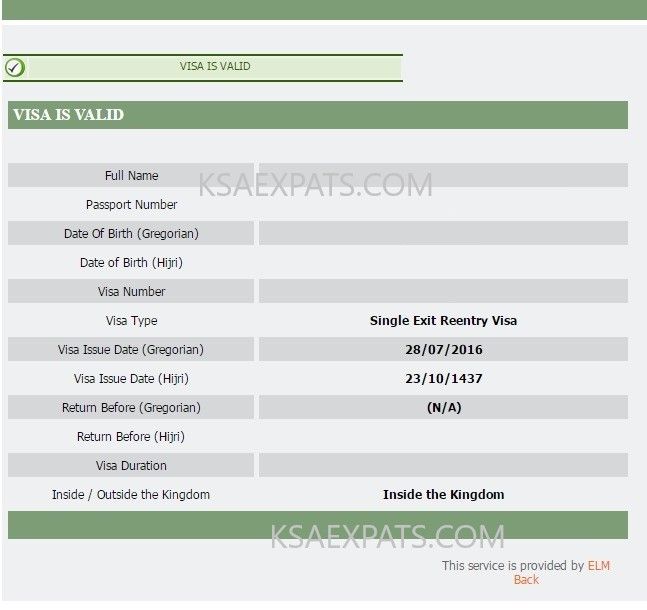
Visa Renewal from Abroad
If your visa expires while you are outside the foreign country, you will typically need to renew it at a U.S. embassy or consulate before returning.
If your visa expires while you are outside the foreign country, you will typically need to renew it at a U.S. embassy or consulate before returning. This crucial step in maintaining your legal status ensures a smooth reentry into the United States. Embassy and consulate staff are there to assist you in this process and it’s essential to plan ahead to avoid any disruptions to your travel plans. By proactively renewing your visa, you can enjoy peace of mind during your travels and continue to enjoy the opportunities and experiences that your time in the U.S. has to offer.
For a comprehensive look at this subject, we invite you to read more on this dedicated page: Travel | ICE

Automatic Revalidation
Some visa holders may be eligible for automatic revalidation, allowing short trips to nearby countries without needing to renew their visa.
Automatic revalidation is a valuable benefit that offers convenience and flexibility to certain visa holders. It permits eligible individuals to travel to nearby countries for brief visits without the need to undergo the often time-consuming and costly process of renewing their visa. Here’s a more comprehensive look at this significant aspect of U.S. immigration policy:
Eligibility Criteria: To take advantage of automatic revalidation, visa holders must meet specific eligibility criteria. Typically, this benefit applies to individuals with expired U.S. visas, provided they meet the following conditions:
- The visit is to a contiguous territory, such as Canada or Mexico.
- The stay in the neighboring country is limited to 30 days or less.
- The visa holder is in possession of a valid passport.
- The individual has not applied for a new U.S. visa during their visit to the neighboring country.
- The traveler maintains their original immigration status (e.g., H-1B, L-1, F-1) and does not have a pending visa extension or change of status application.
Advantages of Automatic Revalidation: Automatic revalidation offers several key advantages:
Cost-Efficiency: Visa renewal involves application fees, appointments at U.S. consulates or embassies and potential delays. Automatic revalidation eliminates these expenses and time constraints.
Time Savings: Visa renewal processes can be time-consuming, with appointments, interviews and administrative processing. Automatic revalidation allows for quick border crossings.
Reduced Disruption: Traveling internationally solely for visa renewal can disrupt work or study routines. Automatic revalidation allows visa holders to make short, nearby trips without significant disruptions.
Common Use Cases: Automatic revalidation is frequently utilized by individuals with expired visas who need to travel briefly for business, tourism or family reasons. For instance, professionals on H-1B visas may use this benefit to attend conferences or meetings in Canada or Mexico.
Exceptions and Considerations: While automatic revalidation is a valuable privilege, it’s essential to be aware of its limitations and exceptions. For instance, it does not apply to certain visa categories, such as E, K and V visas. Additionally, individuals who have traveled to countries other than contiguous territories during their trip may not be eligible.
Documentation: To take advantage of automatic revalidation, visa holders should carry specific documentation, including an expired U.S. visa, a valid passport, a Form I-94 (Arrival/Departure Record) and evidence of their ongoing U.S. immigration status (e.g., an approval notice for an extension or change of status).
Planning and Compliance: Careful planning is essential when using automatic revalidation. Visa holders should ensure they meet all eligibility criteria and have the necessary documentation. Compliance with U.S. immigration regulations is critical to maintaining eligibility.
In summary, automatic revalidation is a valuable option for certain visa holders, allowing for hassle-free short trips to neighboring countries without the need to renew their U.S. visa. However, it’s essential to understand the eligibility criteria, exceptions and documentation requirements to utilize this benefit effectively. By doing so, individuals can maximize convenience, save time and money and maintain their U.S. immigration status with ease.
Should you desire more in-depth information, it’s available for your perusal on this page: Travel Outside the US | Office of International Services | Oregon …
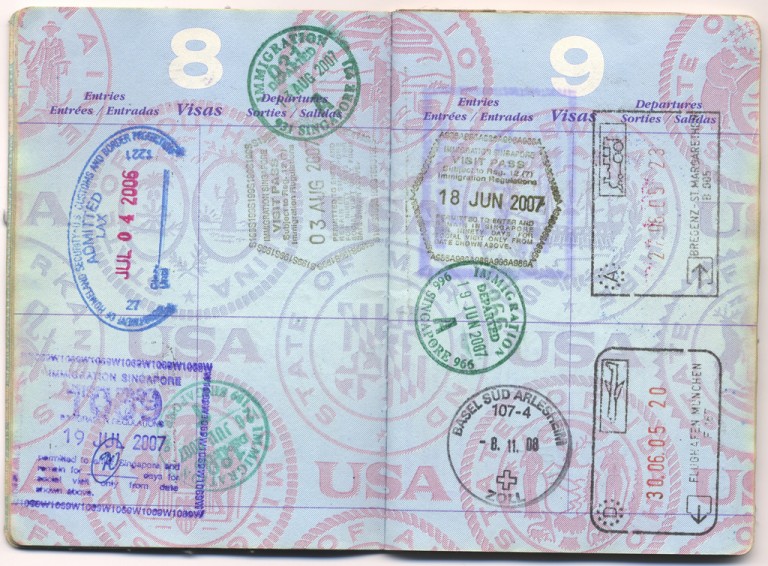
Maintaining status on your visa is crucial to avoid legal issues and ensure a smooth transition during your stay abroad. Understanding visa validity, extensions and travel regulations is vital for all visa holders, whether you’re studying, working or visiting loved ones. Always stay informed about the rules pertaining to your specific visa category and seek legal advice or guidance from immigration experts when needed. With the right knowledge and adherence to immigration laws, you can make the most of your international experience while remaining in good legal standing.
Maintaining legal status on your visa is not just a bureaucratic requirement; it is the foundation upon which your international journey is built. Here’s why it’s paramount and how to navigate this critical aspect of your stay abroad:
Compliance with Immigration Laws: Staying in good legal standing ensures that you are complying with the host country’s immigration laws and regulations. This compliance is not only essential for your own peace of mind but also for preserving your ability to enjoy the privileges and opportunities that come with your visa.
Avoiding Legal Consequences: Falling out of status can have severe legal consequences, including deportation, visa revocation and future entry bans. These consequences can have a lasting impact on your ability to return to the host country or pursue further international opportunities.
Smooth Transition: Maintaining status ensures a smooth transition during your stay abroad. It allows you to focus on your studies, work or personal experiences without the stress and uncertainty of potential legal issues hanging over you.
Understanding Visa Validity: Familiarize yourself with the validity period of your visa. Knowing when your visa expires is essential for planning your activities, travel and any potential extensions. Overstaying your visa’s validity can lead to serious problems.
Extensions and Renewals: If you need more time in the host country, be proactive about seeking visa extensions or renewals well in advance of your visa’s expiration. Each country has its own processes and deadlines for these applications, so understanding them is crucial.
Travel Regulations: Pay attention to travel regulations associated with your visa category. Some visas have restrictions on leaving and reentering the host country during your stay. Failing to adhere to these rules can result in complications upon your return.
Consult Experts: Seek guidance from immigration experts, such as attorneys or advisors, who specialize in the specific visa category you hold. They can provide invaluable insights into the intricacies of immigration law, help you navigate the application process and ensure that you remain in compliance.
Stay Informed: Immigration laws can change and policies may evolve. Make it a habit to stay informed about any updates or changes to immigration regulations that may impact your status. Joining online forums, attending informational sessions or subscribing to official government updates are ways to stay in the loop.
In conclusion, maintaining legal status on your visa is the bedrock of your international experience. It allows you to fully embrace the opportunities and adventures that come with living abroad while avoiding the pitfalls of non-compliance with immigration laws. By understanding your visa’s validity, adhering to travel regulations and seeking expert guidance when needed, you can make the most of your international journey while ensuring you remain in good legal standing.
Looking for more insights? You’ll find them right here in our extended coverage: About Visas – The Basics
More links
Explore this link for a more extensive examination of the topic: Visa vs. Status | The Office of International Affairs | The University of …
